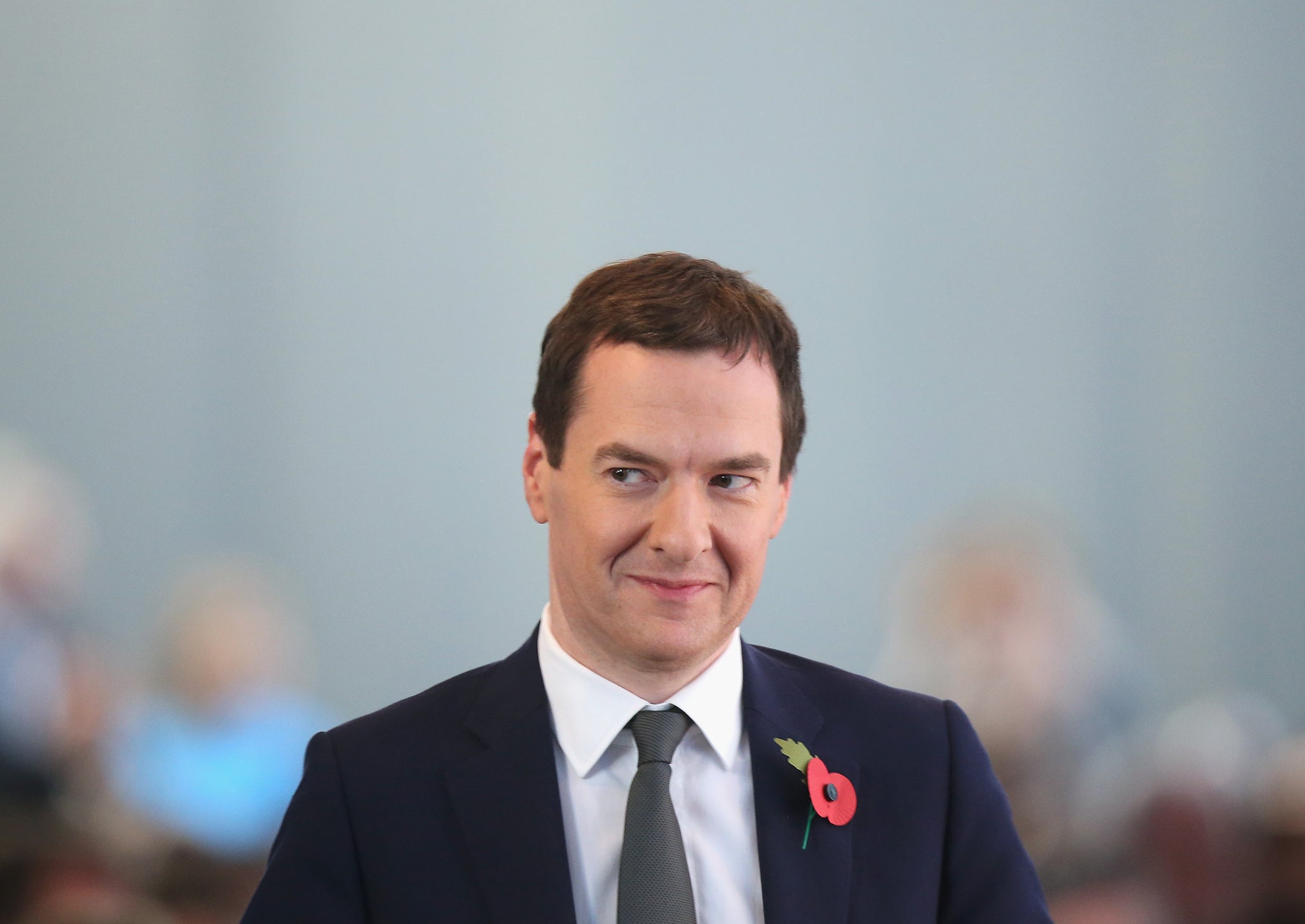Your support helps us to tell the story
From reproductive rights to climate change to Big Tech, The Independent is on the ground when the story is developing. Whether it's investigating the financials of Elon Musk's pro-Trump PAC or producing our latest documentary, 'The A Word', which shines a light on the American women fighting for reproductive rights, we know how important it is to parse out the facts from the messaging.
At such a critical moment in US history, we need reporters on the ground. Your donation allows us to keep sending journalists to speak to both sides of the story.
The Independent is trusted by Americans across the entire political spectrum. And unlike many other quality news outlets, we choose not to lock Americans out of our reporting and analysis with paywalls. We believe quality journalism should be available to everyone, paid for by those who can afford it.
Your support makes all the difference.George Osborne emerged from last month’s Conservative party conference the toast of the Tory party.
He had convinced commentators that he had grabbed the “centre ground” from Labour with a minimum-wage rising budget and was favourite to succeed David Cameron as leader.
Then came weeks of criticism about his planned cuts to tax credits. On Wednesday he gives his Autumn Statement in the House of Commons. Here are three problems he needs to address.
1) How to stop tax credits hurting the poorest?

The Chancellor was sent packing by the House of Lords after he tried to pass his tax credit cuts as a statutory instrument.
Analysis from the Institute for Fiscal Studies shows Mr Osborne’s planned minimum wage won’t compensate for the cuts.
The Resolution Foundation has estimated that the cuts will put 200,000 children into poverty over night.
The Chancellor has said the tax credit cuts will go ahead but that the Government will bring forward new measures to mitigate their image.
He’ll need to genuinely fix the problems because any change in the policy will be subject to analysis by the Institute for Fiscal Studies after a Lords amendment mandated it so.
2) ...without breaking your own borrowing targets...
In theory mitigating the impact of the tax credit cuts should be easy: cancel them. But the Chancellor has a strait jacket of his own making – strict borrowing targets.
George Osborne has promised to run a budget surplus by the end of the decade and reduce borrowing to £69.5 billion this financial year.
It’s looking increasingly likely that he’ll loosen his borrowing targets to make any headway.
But he’s already off target by £11bn.
As the above chart shows, the latest month's borrowing figures were disappointing for the Chancellor: he borrowed the same in October as he borrowed in October 2012, reversing progress made in the intervening years.
While single month figures shouldn't be taken in isolation, they pile the pressure on Mr Osborne.
3) ...all whilst making the public like you?
The Chancellor will be walking the tightrope between impact on the poorest and his deficit target. But he’ll have to do it whilst doing the political equivalent of balancing a plate on his nose: keeping his popularity ratings up.
Recent polls show George Osborne is the most unpopular of all the Conservatives in terms of personal ratings and that he is vying with Labour leader Jeremy Corbyn for bottom place by some metrics.
Though still quite popular with members, the above chart shows how he has lost his once commanding lead.
If the Chancellor wants to convince Conservative activists that he’s the man to lead the party – and if he is then to win the 2020 election – he’ll need to make people like or respect him.
With his reputation built on his approach to the public finances, straying too far either side of his tightrope could be disastrous.

Join our commenting forum
Join thought-provoking conversations, follow other Independent readers and see their replies
Comments